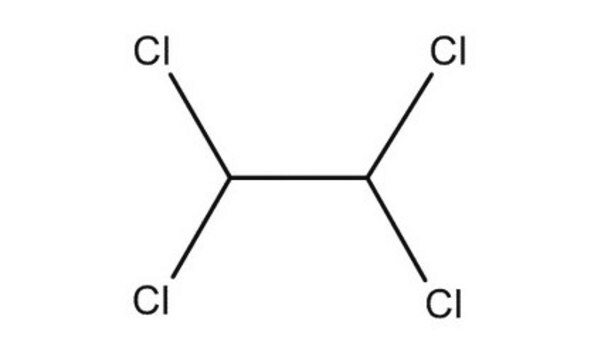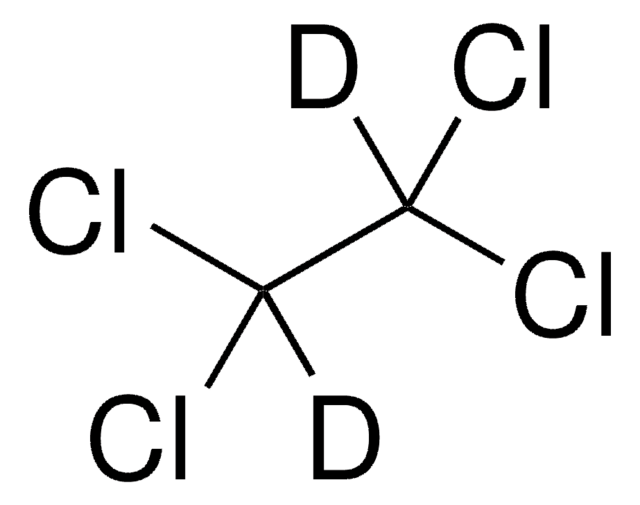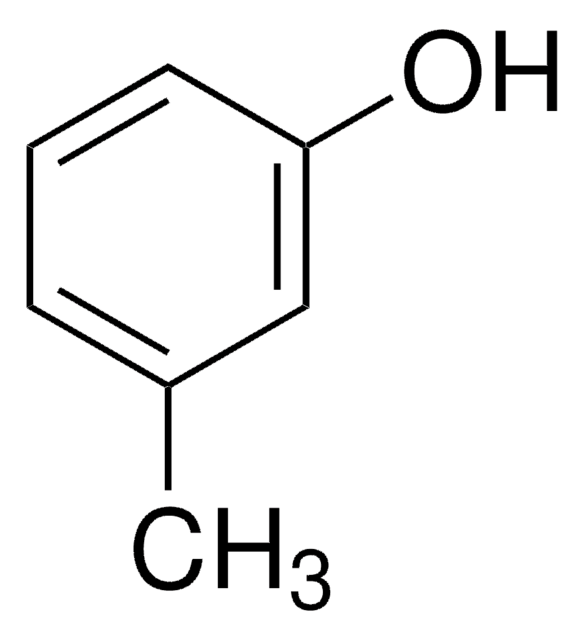46259
1,1,2,2-Tetrachloroethane
analytical standard
Sinónimos:
Acetylene tetrachloride
About This Item
Productos recomendados
grade
analytical standard
Quality Level
vapor density
5.8 (vs air)
vapor pressure
8 mmHg ( 20 °C)
shelf life
limited shelf life, expiry date on the label
technique(s)
HPLC: suitable
gas chromatography (GC): suitable
refractive index
n20/D 1.494 (lit.)
bp
147 °C (lit.)
mp
−43 °C (lit.)
density
1.586 g/mL at 25 °C (lit.)
application(s)
environmental
format
neat
storage temp.
2-8°C
SMILES string
ClC(Cl)C(Cl)Cl
InChI
1S/C2H2Cl4/c3-1(4)2(5)6/h1-2H
InChI key
QPFMBZIOSGYJDE-UHFFFAOYSA-N
¿Está buscando productos similares? Visita Guía de comparación de productos
Application
signalword
Danger
hcodes
Hazard Classifications
Acute Tox. 1 Dermal - Acute Tox. 2 Inhalation - Aquatic Chronic 2
Storage Class
6.1A - Combustible acute toxic Cat. 1 and 2 / very toxic hazardous materials
wgk_germany
WGK 3
flash_point_f
Not applicable
flash_point_c
Not applicable
ppe
Eyeshields, Faceshields, Gloves, type ABEK (EN14387) respirator filter
Elija entre una de las versiones más recientes:
¿Ya tiene este producto?
Encuentre la documentación para los productos que ha comprado recientemente en la Biblioteca de documentos.
Protocolos
US EPA Method TO-17: GC Analysis of Volatiles on VOCOL® after Collection/Desorption using Air Toxics Tube
US EPA Method 8260 describes the analysis of volatile organic compounds in solid wastes and ground waters. This application illustrates the analysis of many compounds commonly analyzed by this method using purge and trap coupled to GC-MS.
Nuestro equipo de científicos tiene experiencia en todas las áreas de investigación: Ciencias de la vida, Ciencia de los materiales, Síntesis química, Cromatografía, Analítica y muchas otras.
Póngase en contacto con el Servicio técnico









